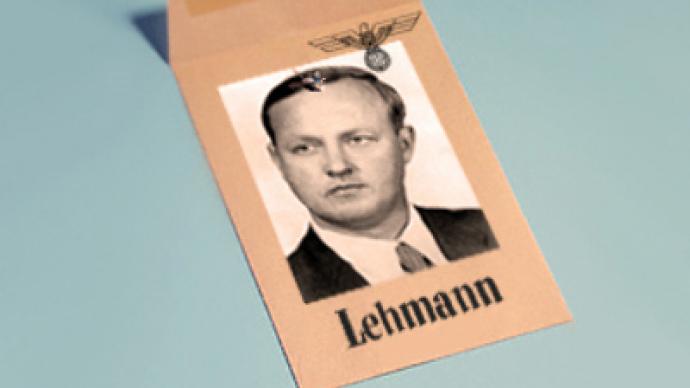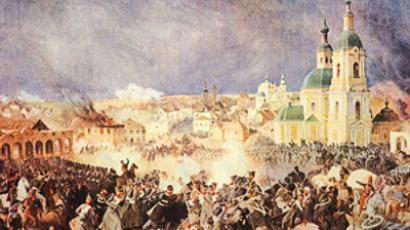Moscow’s spy in Gestapo revealed

Russian intelligence has declassified documents on Willy Lehmann, a German man who spied on the Nazis for the Soviet Union for 12 years.
A prominent figure in the Nazi secret police Gestapo, he was, in fact, a mole and on many occasions saved the lives of Moscow’s spies.
Details of the biography of one of the most high-ranking soviet double agents in the Third Reich have been revealed by Russia’s Foreign Intelligence Service (FIS). Some 100 pages of declassified documents were handed over to Lehmann’s biographer, intelligence historian and writer Teodor Gladkov.
The man codenamed “A-201” and “Breitenbach” had been working with Soviet intelligence since 1929. Serving in the counterintelligence branch of Berlin’s police and later in the Gestapo, he had access to secret information on Germany’s operations against foreign espionage networks. Lehmann gave information which saved a Soviet deputy military attaché when the Germans planned a provocation against him, and warned about the upcoming arrests of people working for Moscow.
“Archive materials make it clear that Lehmann didn’t miss a single serious operation against soviet residents and agencies and warned about them in time. As a result the network in Berlin de facto had no failures, and it’s a very rare case in the history of intelligence services, especially if you take into account the strict counterintelligence environment,” the FIS says.
When he was assigned to providing security for the German military industry, he started reporting on the newest weapons designed in the country. For instance, he witnessed test launches of rockets developed by Werner von Braun’s team and gave intelligence on the building of 17 submarines which was forbidden by the Treaty of Versailles.
Lehmann’s other reports were about the structure and personnel of the Gestapo and its sister agencies. Months before Germany attacked the Soviet Union, he warned about the stepping up of security in German secret services and the recalling of retired officers to bulk up their ranks.
His last report was three days before the invasion on June 19. He gave the exact date and time of the attack. Unfortunately this accurate intelligence was compromised in the disinformation campaign of the Nazis, and Moscow failed to make use of it.
Good ole Willy
Breitenbach’s success as a double agent was in many regards a result of his personality. He was a cheerful, obese man, who was never much interested in his career, rising in ranks only to SS Hauptsturmführer, which corresponds to the rank of captain. Fellow Gestapo officers, most of whom were younger than him, didn’t see Lehmann as competition and didn’t hesitate to reveal sensitive information in friendly chat. He managed to keep supplying intelligence for 12 years in a row.
“It’s a colossal time in terms of the scale of work for one agent. Few people worked this long without being put on hold. And he really was active all this time,” says historian Teodor Gladkov.
His contact with Moscow was severed in 1938 after Stalin’s Great Purge of the military. Two years later he took a great risk by sending an anonymous letter to the Soviet Embassy in Berlin, suggesting reestablishing the link.
It was not his fault that led to Lehmann’s downfall in the end, but rather the mistake of a new resident in Germany, who got caught and exposed the spy. For the Gestapo it was a massive scandal, which they did their best to hush up. Lehmann was quietly arrested and executed, but his wife was informed that he had a seizure due to diabetes and fell off a train.
Immortality in legend
In 1970s the story of the “super spy” gave birth to a legend. Lehmann’s life and espionage career was described in the memoirs of his former chief Walter Schellenberg. The story – along with that of another famous spy, Richard Sorge – inspired fiction writer Yulian Semyonov to create popular character Max Otto von Stirlitz. A Soviet agent acting in several Nazi counterintelligence agencies, Stirlitz features in a dozen books as well as in several films, a continuously popular TV series and a countless number of Russian jokes.
Lehmann’s motives for spying for Moscow are subject to debate. One version says he was a fan of horseracing and a venturous gambler, and wanted extra money for the habit. Another says he spied for ideological reasons. A veteran of World War I, he dreaded witnessing another one and also hated Nazi ideology. Perhaps Gladkov’s biography of “Breitenbach” will shed more light on this question.














